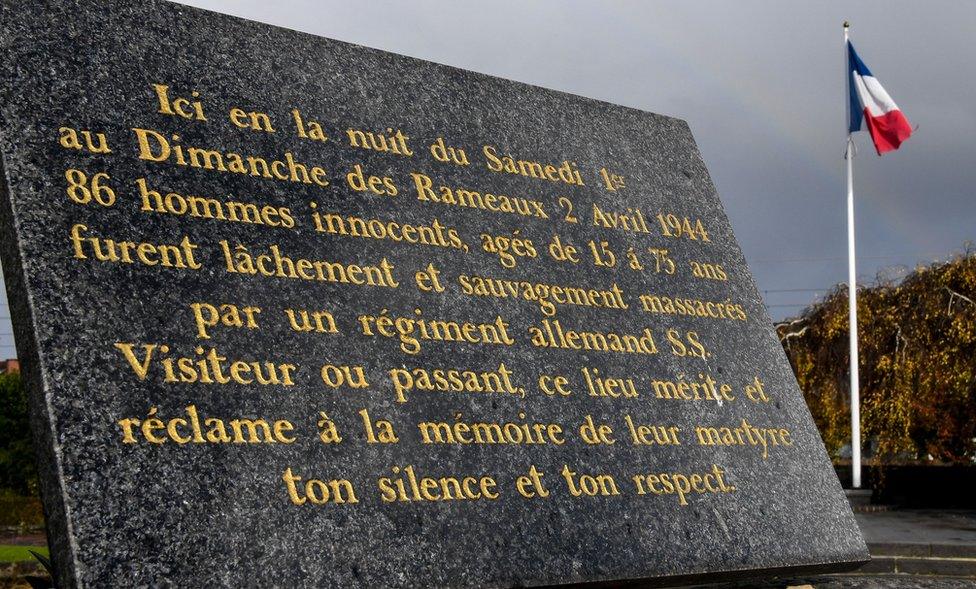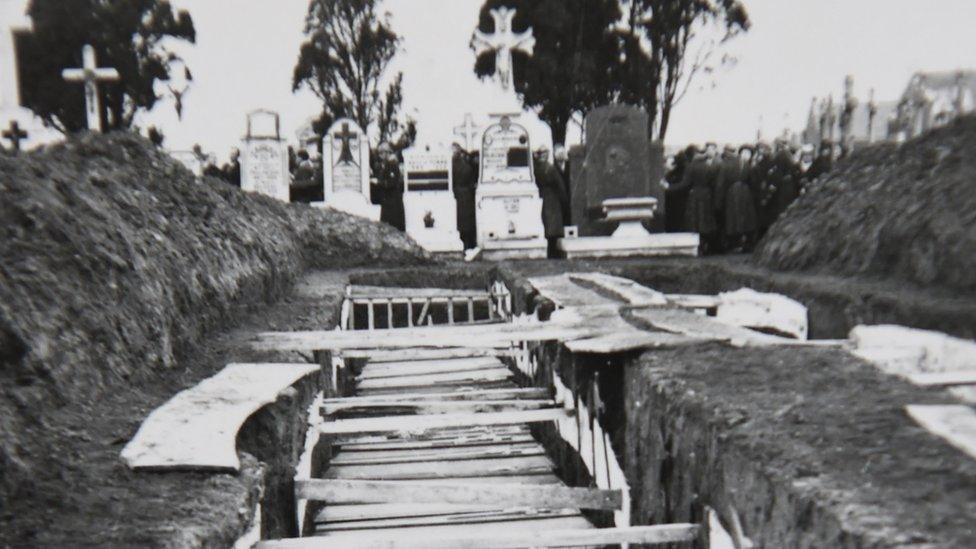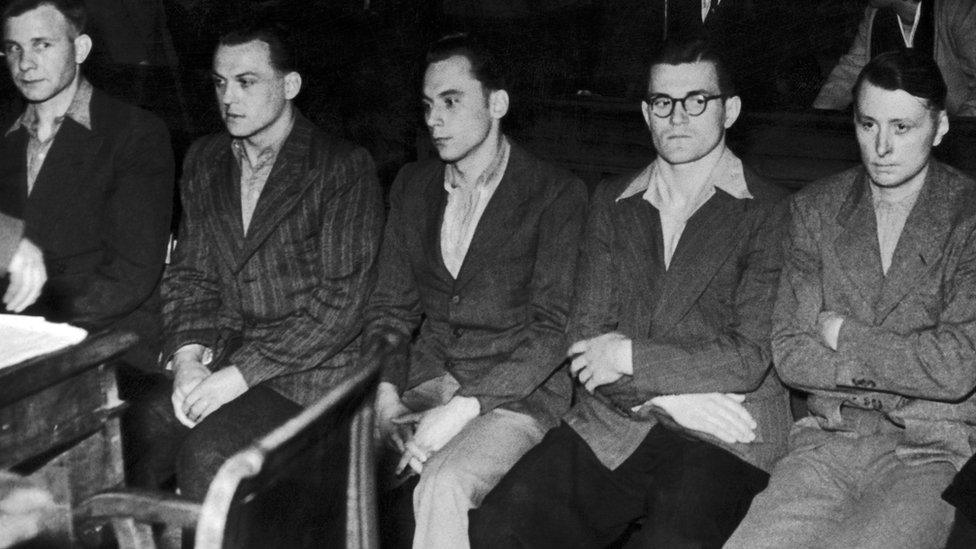Nazi SS man investigated for incitement over Ascq massacre
- Published

A plaque at Villeneuve-d'Ascq commemorates the victims of the SS massacre in 1944
Prosecutors in northern Germany are investigating a 96-year-old man who was involved in the massacre of 86 French men and boys in a village in northern France in April 1944.
Karl Münter was sentenced to death in France in absentia in 1949, and can no longer be prosecuted for the killings.
But he caused outrage in a TV interview when he blamed the victims for the massacre because they ran away.
He is now being investigated for incitement to hatred.
He denies firing a shot, insisting he was only ordered to carry out arrests. But he has no regrets over the World War Two slaughter.
He told a German TV programme last year: "If I arrest the men I'm responsible for them. And if they run away I have the right to shoot them."
What happened during the war?
Months before the allied invasion of northern France, members of the Resistance set off explosives on a railway line near Lille, derailing a train carrying a battalion from the 12th Waffen SS armoured division of the Hitler youth.
A few goods cars came off the track and no-one was hurt - but Lt Walter Hauck, who was in charge of the transport, ordered an SS reprisal attack on the nearby village of Ascq late at night on 1 April.
Dozens of men and boys were dragged to the railway, lined up and shot. The youngest was a schoolboy of 15, the eldest was 75.

Seventy years after the massacre, a relative of one of the victims tried unsuccessfully to have Karl Münter prosecuted

The massacre was later dubbed The Oradour of the North - after the SS massacre two months afterwards at Oradour-sur-Glane, where 642 people died.
A few years later 17 suspects in the massacre were identified, including Walter Hauck and Karl Münter, who was a 21-year-old junior squad leader at the time of the killings.

Walter Hauck (far right) was among several of the SS killers sentenced to death in 1949

Nine of the 17 were tried in Lille in 1949; eight were sentenced to death but pardoned six years later. The other eight were also sentenced to death in absentia.
What happened to Münter?
In 2013, Alexandre Delezenne, the great-grandson of one of the victims, filed a complaint with prosecutors in Dortmund in Germany.
Investigators traced Karl Münter to the state of Lower Saxony and visited Ascq, now part of the town of Villeneuve-d'Ascq.
Prosecutors later decided that a case could not be brought.
Under the EU's Schengen agreement, a member of one state cannot be accused of an offence that he has been convicted of in another. He was convicted in France of a war crime where the statute of limitations runs out after 20 years.
Mr Delezenne argued that the massacre was a crime against humanity rather than a war crime.
However, prosecutors in Hildesheim have opened an investigation into whether Karl Münter is guilty of hate speech for his interview with ARD TV in November.
"Why should I regret it?" he told the programme. "I didn't fire a shot."
He also disputed the murder of six million Jews in the Holocaust and has been feted by Neo-Nazis for his role in the SS.
After the interview was broadcast, the mayor of Villeneuve-d'Ascq, Gérard Caudron, spoke of the "immeasurable disgust" at his comments and said he would appeal to the leaders of Germany, France and the EU, external to denounce statements that denied the massacres committed by the Nazis and their accomplices.
- Published30 January 2019
